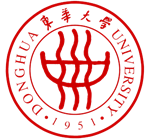As one of the higher education institutions, Shanghai University of Engineering Science (SUES) integrates and coordinates engineering, economics, management, art, design, and other disciplines. SUES is one of the first batches of pilot universities under the Outstanding Engineer Education and Training Program of the Ministry of Education, the pioneer of Emerging Engineering Education and High-level Application-oriented Universities in Shanghai. Since 2017, SUES has been applying to be a doctoral degree-awarding institution in Shanghai. The Shanghai University of Engineering Science was established in 1985, based on the Mechanical and Electrical Branch of Shanghai Jiao Tong University, the Branch of Shanghai Institute of Chemical Technology (incorporated into Mechanical and Electrical Branch of Shanghai Jiao Tong University in 1984), and Branch of Shanghai Textile Institute of Technology (renamed as East China Textile Institute of Technology in 1980).In 2003, the Shanghai Technician School (founded in 1951) was merged into Shanghai University of Engineering Science. The three campuses of SUES, Songjiang, Changning, and Hongkou, cover nearly 98 hectares, with a total construction area of 710,000 square meters, total fixed assets of about 345 million US dollars, and teaching and scientific research instruments of about 120 million US dollars. SUES has established the following schools/colleges: School of Mechanical and Automotive Engineering, School of Electronic and Electrical Engineering, School of Management Studies, School of Chemistry and Chemical Engineering, School of Material Engineering, School of Art and Design, Sino-Korean School of Multimedia Design, School of Air Transportation (School of Flying), School of Art and Design, School of Urban Railway Transportation, School of Mathematics, Physics and Statistics, School of Foreign Languages, School of Marxism, Engineering Training Center, College of International Education, School of Continuing Education, Higher Vocational and Technical College, Department of Physical Education, as well as the National Experimental Teaching Demonstration Center and National Virtual Simulation Experimental Teaching Center. SUES is committed to deepening education and teaching reformation, innovating the training mode of talents, and improving education quality. There are currently 11 master's degree-awarding programs for first-level disciplines, three professional master's degree-awarding programs, and 61 undergraduate programs. Mechanical engineering, fashion design, and engineering were selected as the national first-class undergraduate major constructions. Six majors, including flight technology, transportation, chemical engineering and technology, pharmaceutical engineering, environmental engineering, and product design, were selected as the first-class undergraduate major construction sites in Shanghai. Eight other majors have been certified in engineering education. The University has nearly 24,000 full-time students, including about 4,200 postgraduate students. All undergraduate programs in the University (except for Sino-foreign cooperatively run programs) are subject to a full credit system with a standard length of four years. Students can complete their studies within three to six years. We adhere to the tenet of being based on modern industry, serving the socioeconomic development and modern industrial development needs. Taking the Industry-University-Research strategic alliance as the platform, we have built the Four Collaboratives mode: collaborative education, collaborative cultivation, collaborative innovation, and joint employment, helping the University become the cradle of training excellent engineers and engineering service talents. SUES graduates have a significant competitive advantage in employment and are generally welcomed by employers, with the employment rate continuously above 98%. SUES adheres to discipline guidance and continuously enhances the core innovation of scientific research. Its engineering disciplines entered the top 1% of ESI in the world. It operates one Shanghai III peak discipline, one IV peak discipline, and 14 provincial-level scientific research platforms such as the Collaborative Innovation Center, R&D Public Service Platform, and Engineering Technology Research Center. Since 2015, the faculty have won 167 National Natural Science Fund projects, participated in 5 National Science and Technology Support Program projects, 46 National Social Science Fund projects, one major research project of Philosophy and Social Science Research of the Ministry of Education, one major project of the 13th Five-Year Plan of the National Development and Reform Commission, five National Art Fund projects and 483 provincial-level projects. They have won 25 Shanghai Science and Technology Awards, five Shanghai Philosophy and Social Sciences Outstanding Achievement Awards, three Shanghai Decision Consulting Research Achievement Awards, and more than 2,700 patents. Its affiliated National University Science Park is a comprehensive scientific and technological innovation platform for transforming scientific and technological achievements, incubating entrepreneurial enterprises, and cultivating innovative and entrepreneurial talents. SUES attaches great importance to creating a high-quality and high-level talent body. There are more than 1,920 faculty members, including more than 1,500 full-time teachers, among whom more than 58% hold doctoral degrees and more than 590 hold senior professional and technical titles. It has four academicians from the Chinese Academy of Engineering (including two part-time academicians), ten high-level national talents, one new Century Outstanding Talents of the Ministry of Education, eight experts enjoying the special government allowance from the State Council, and more than 100 provincial and ministerial-level talents. Adhering to the concept of globalized education, we have created various overseas learning exchange platforms and channels for students. So far, we have established cooperative relations with more than 90 universities or institutions in more than 20 countries and regions, including the United States, Canada, Britain, Germany, France, Italy, Sweden, Switzerland, Spain, Portugal, Ireland, Finland, Russia, Australia, South Korea, Japan, Singapore, Malaysia, Kazakhstan, and Pakistan. There are Sino-Korean, Sino-French, and Sino-Swiss cooperative education programs, providing more than 80 overseas study and exchange programs, including joint training of doctors, joint training of master's and undergraduate degrees, mutual recognition of credits, graduation design, overseas internships, and international industry-university collaboration.SUES recruits nearly 1,000 international students from more than 90 countries, including Germany, France, Russia, Japan, South Korea, Vietnam and Mongolia, and many other countries and regions. Along with higher education reform and development, we vigorously implement the three development strategies: strengthening the university with talents, developing with characteristics, and internationalization; we take root in China, cultivate high-quality engineering application-oriented talents who are responsible for national rejuvenation, and advance confidently on the journey of building a high-level modern engineering application-oriented university.
Show less
_1.png?auto=format,enhance,redeye,compress,true)
_2.png?auto=format,enhance,redeye,compress,true)
_3.png?auto=format,enhance,redeye,compress,true)
_4.png?auto=format,enhance,redeye,compress,true)
_5.png?auto=format,enhance,redeye,compress,true)
_6.png?auto=format,enhance,redeye,compress,true)
_7.png?auto=format,enhance,redeye,compress,true)
_8.png?auto=format,enhance,redeye,compress,true)
_9.png?auto=format,enhance,redeye,compress,true)
_10.png?auto=format,enhance,redeye,compress,true)
_11.png?auto=format,enhance,redeye,compress,true)
.png)








